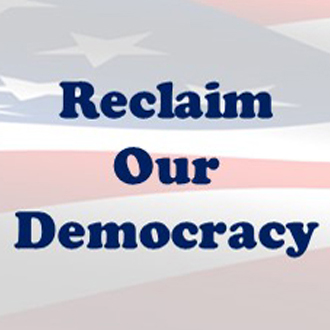
The various types of news media are our major sources of information about what is happening in the world. They inform us about current events, and provide information about our political leaders and the issues that are getting their attention. At election time they are the primary source of the information we receive about the various candidates running for office. To have a working democracy it is critical that the media provide voters with information that is accurate, unbiased, and comprehensive. That is what enables “we the people” to make good choices when we vote.
“Today, however, falsehoods can spread much more easily, through social media and a fractured news environment. In the 1950s, no major television network spread the lies about Eisenhower. In recent years, the country’s most watched cable channel, Fox News, has regularly promoted falsehoods about election results, Mr. Obama’s birthplace and other subjects.” (A Crises Coming: The Twin Threats to American Democracy, David Leonhardt, NY Times, Sep. 17, 2022, updated, Sep. 21, 2022)
The selection of what information to provide the public is also misleading. We are fed a barrage of bad news in short segments. The old line on local news reporting was “If it bleeds, it leads.” For political reporting, the principle is “If it outrages, it leads.” We are outraged when members of other groups threaten our group and violate our values. As such, polarized media doesn’t emphasize commonalities, it weaponizes differences; it doesn’t focus on the best of the other side, it threatens you with the worst. It’s much easier to organize people against something than it is to unite them in an affirmative vision. And, within the economy of attention, conflict always gets more people to look. (Vox, Jan. 28, 2020)
If that’s not enough of a problem, in the months leading up to an election, millions of dollars are now being spent on political advertisements. Much of this money is spent on negative political ads, which not only provide inaccurate information, they also increase our negative feelings about politics and the candidates running for office. That’s exactly the opposite of what is needed for a healthy democracy.
Rapid Decline of Local Newspapers
What Happens to Democracy When Local Journalism Dries Up? By Margaret Sullivan, Nov. 30, 2021 Washington Post
Between 2005 and the start of the pandemic, about 2,100 newspapers closed their doors. Since covid struck, at least 80 more papers have gone out of business, as have an undetermined number of other local publications. Those papers that survived are still facing difficult straits. Many have laid off scores of reporters and editors — according to Pew Research Center, the newspaper industry lost an astonishing 57 percent of its employees between 2008 and 2020 — making these publications a mere specter of their former selves. They are now “ghost newspapers”: outlets that may bear the proud old name of yore but no longer do the job of thoroughly covering their communities and providing original reporting on matters of public interest.
In many regions of the country, there is no local news coverage at all, or next to none. These areas have come to be known as “news deserts” — a term used by academics and researchers to refer to areas where coverage of the community by local news outlets is minimal or nonexistent. It’s in such places that the collapse of local news is being felt most dramatically. Then again, even if you don’t live in a defined news desert, you may have noticed that your regional paper long ago ditched actively covering your community if it is outside the immediate city and first-ring suburbs.
By 2020, out of the 3,000-plus U.S. counties, half had just one local print newspaper of any kind. Only a third had a daily newspaper. Over 200 counties had no newspaper whatsoever.
The problem, going forward, is that when it comes to revealing malfeasance, you don’t know what you don’t know: If there’s no one to keep public officials honest, citizens might never find out how their faith is being broken and their tax dollars squandered. It’s not just watchdog journalism that suffers when news organizations shrink or die. The decline affects civic engagement and political polarization, too. Studies show that people who live in areas with poor local news coverage are less likely to vote, and when they do, they are more likely to do so strictly along party lines. To put it bluntly, the demise of local news poses the kind of danger to our democracy that should have alarm sirens screeching across the land.
Timothy Snyder, a Yale history professor and author of “On Tyranny: Twenty Lessons From the Twentieth Century,” has called the loss of local news “the essential problem of our republic.” It is nothing less than a crisis, he says, and a deepening one. “The only way we can talk to other people is with some common understanding of the facts, for example whether or not our water is polluted or whether or not the teachers in our school are on strike,” Snyder told E-International Relations. We don’t have to like what we learn about our communities through local news reporting, he noted, but it benefits us nonetheless. “When local news goes away, then our sense of what is true shifts from what is helpful to us in our daily lives to what makes us ‘feel good,’ which is something entirely different,” Snyder said. And, I would add, something very troubling.
There is no single answer to this crisis. Any solution, if there even is a solution, will require a multifaceted approach. But before local news can be saved, or successfully reinvented, one thing is absolutely necessary: American citizens must understand the existential threat local outlets are facing — and the incalculable value that their journalism brings to our democracy.
